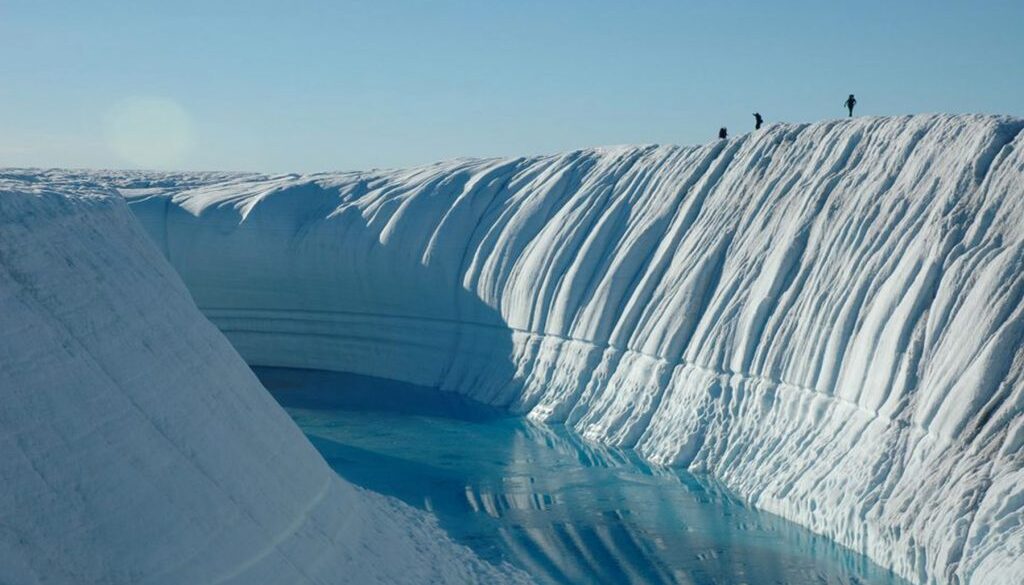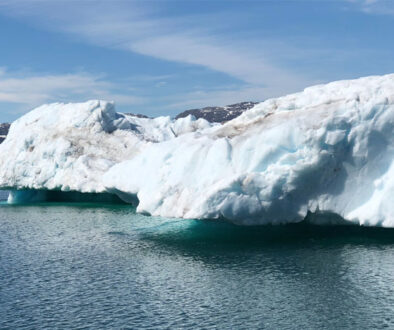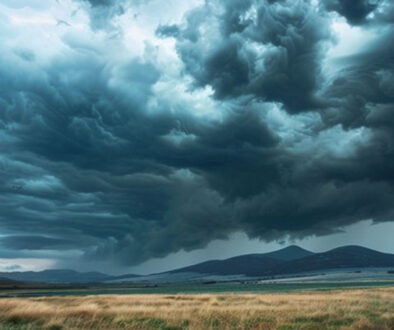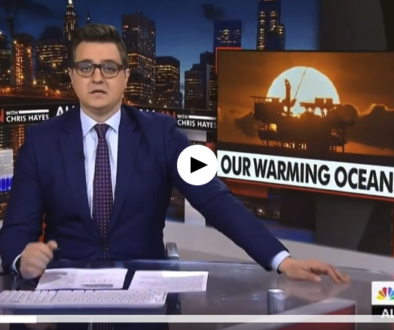Greenland has lost ice for 26 consecutive years
“In the Arctic, the end of the northern-hemisphere summer brings with it the close of the melt season. It is also the traditional moment for Carbon Brief to publish its annual health check of the Greenland ice sheet, written by scientists at the Danish Meteorological Institute.
This year’s review finds that “taking into account surface melting, breaking off of icebergs and frictional effects under glaciers, the Greenland ice sheet lost 84Gt of ice over the 12 months from September 2021 to August 2022”.
This makes 2022 the “26th year in a row where Greenland lost ice overall”, the authors note, adding that “Greenland last saw an annual net gain of ice in 1996”.
The end of the summer also means the arrival of this year’s Arctic sea ice summer minimum. Provisional numbers from the US National Snow and Ice Data Center (NSIDC) – announced late yesterday – suggest that 2022 is tied with 2017 and 2018 as the 10th smallest on record.
While one scientist described this summer to Carbon Brief as “uneventful” for Arctic sea ice, the data also highlights the long-term impacts of warming, with the last 16 years seeing the 16 lowest minimum extents in the satellite record. – Carbon Brief
What does this mean for Aotearoa?
- Sea levels are rising faster than anticipated.
- Less ice means darker ocean waters absorb even more warmth, which in turn leads to more warming and less future sea ice, in a feedback effect.
- This in turn is changing how ocean currents behave, and this reaches all the way down to Aotearoa and has an impact on oceanic ecosystems.




